Computer Shuts Down When Playing Games [Here's What to Do]
Why your Computer Shuts Down When Gaming
Usually, if your computer shuts down when playing games, the PSU may need to be fixed. When PSU does not provide stable power or insufficient power, your computer can't work normally and even cause hardware damage. But that's not the only cause for shutting down computers during gaming; there are various other reasons.
Several factors can cause your computer to shut down automatically. It could be a motherboard, loose connection, overheating, or software issue. If you think it is a hardware problem, you should check the power supply first. Ensure it's plugged in properly and the cord isn't frayed or damaged. If the power supply seems to be working fine, check the motherboard. If there is a loose connection, try to tighten it. If that doesn't perform, you may need to replace the motherboard.
If you think there is a problem regarding software, the first thing to do is run a virus scan. If you can't find anything, try uninstalling recently installed programs to help fix the computer restarts when playing games issue. You may need to update or reinstall Windows if this does not resolve the problem. We will discuss several facts, causes, and methods to fix that problem. Kindly read more. We hope you'll find a solution through this simple guide.
Solutions to Computer Shuts Down While Playing Games
These issues with shutting down and restarting your PC can be related to several factors. The objective is to identify the problem to effectively and definitively resolve these untimely shutdowns and restarts.
We will see how to solve the problems of a computer that shuts down by itself or that shuts down and then restarts automatically.
- Way 1. Fix Computer Overheating
- Way 2. Check for PSU Problems
- Way 3. Check for Hardware Issues
- Way 4. Run Virus or Malware Check
- Way 5. Update Drivers
- Way 6. Update Windows
- Way 7. Downgrade Windows to an Earlier Version
Way 1. Fix Computer Overheating
One of the general problems with a PC that shuts down for no particular reason is the internal temperature: your computer is poorly ventilated and overheats.
Suppose the temperature reaches or exceeds a certain threshold (above 100°C). In that case, the integrated thermal protection activates and shuts down the computer to preserve and avoid damaging your system.
An apparent sign is the noise of the fans: if the fan whirl and is noisy, it is undoubtedly that the internal temperature of your computer is too high. It happens when you run a program or a video game that requires a lot of resources (CPU, GPU), generating a lot of heat. It also happens when your computer is poorly ventilated.
So, please solve this problem by following the steps:
Step 1. Remove the dust: If you notice high temperatures on a desktop PC, remove the side panel, then remove the dust using a vacuum cleaner, cloth, or cotton swabs; on a laptop, use a can of compressed air.

Step 2. Ensure optimal ventilation: Do not place your desktop PC in a confined space. If you have a laptop, don't put it on a soft surface that possibly prevents ventilation slots. If necessary, buy more powerful case fans for your desktop PC or a cooling pad for your laptop.
Way 2. Check for PSU Problems
PSU (Power Supply Unit) is a component, and it's responsible for the power supply to the computer. If your computer shuts down suddenly during gaming, you have to check the PSU; there could be a possible fault in the PSU.
Step 1. Try another PSU on your computer and see if that's working or not.
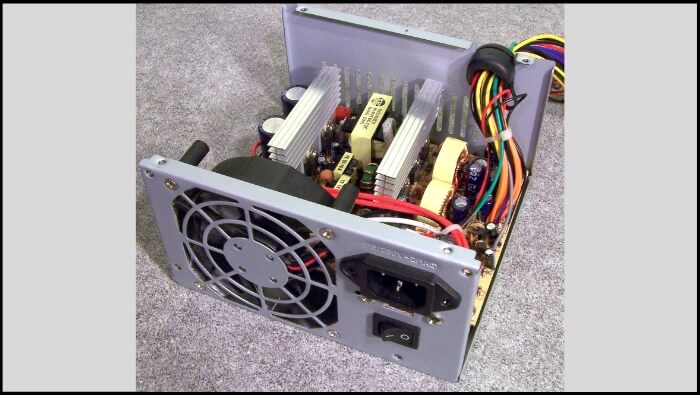
Step 2. Alternatively, if you have a multimeter/power supply tester available, you can check it with a multimeter/ power supply tester.
This is a quick and straightforward way to check PSU if it's faulty. If you find any fault in PSU, you need to change it, so in this way, your computer automatically shut down issue could be solved if it was due to PSU.
Way 3. Check for Hardware Issues
You probably installed new hardware, such as a Wi-Fi card, Bluetooth adapter, or GPU. That hardware could be the reason for automatically shutting down and also when incompatible drivers. So, you need to follow the below steps to solve this issue.
Step 1. It'd be better to remove unneeded hardware. Like modem, network card, sound card, or any other additional card.
Step 2. Then operate your computer without that card to analyze the problem.
That way could fix your issue and prevent your PC from automatically shutting down.
Way 4. Run Virus or Malware Check
You must run a virus or malware check because that could cause incidental damage and shut down your computer while playing games or something else. You should use authentic antivirus software to check and clean your PC from viruses and malware.
Regarding viruses and malware detector software, Windows built-in Windows security is available to check and protect your PC from computer viruses. You're able to scan your PC entirely and remove viruses using it. Follow the below steps:
Step 1. Go to Windows settings, and click "Update & Security".
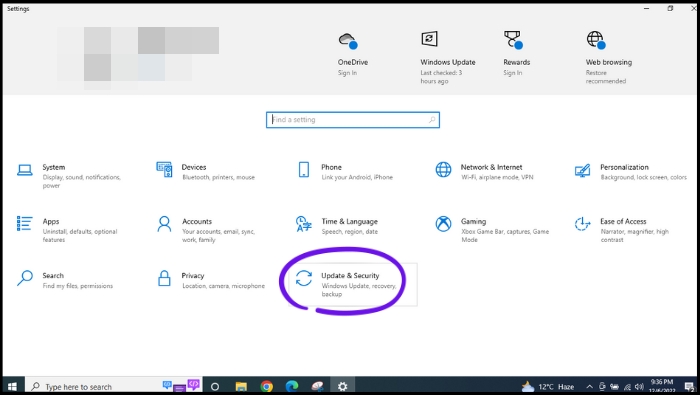
Step 2. Click "Windows Security" from the left menu.

Step 3. Click "Virus & threat protection".
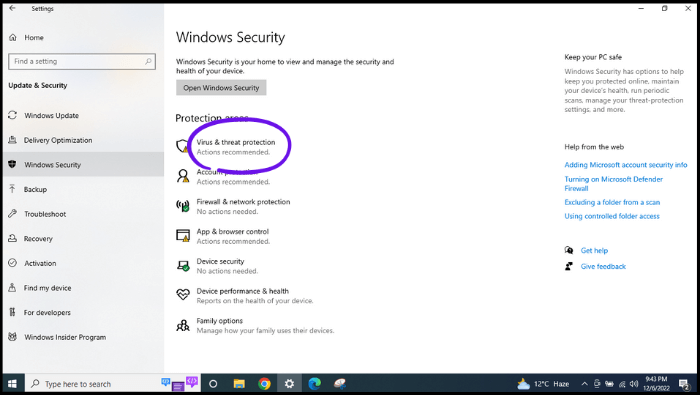
Step 4. Click "Scan options".
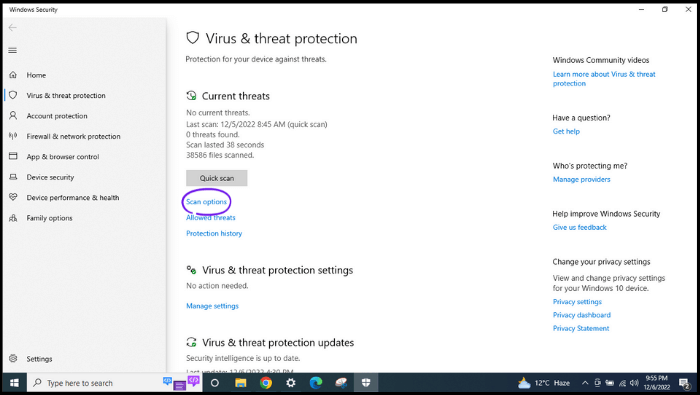
Step 5. Click "Full scan" and then click "Scan now". Wait a few minutes; processing will take time.
Way 5. Update Drivers
Drivers are a crucial part of computer machines, so you need to keep up to dated drivers because due to wrong or outdated drivers, there is a possibility you could face issues like a sudden computer shutting down.
You can update drivers manually and automatically. Please see the below steps:
1. Manually
Step 1. Visit the manufacturer's website and download graphic drivers. In my case, I'm using a dell laptop (Latitude 3460).

Step 2. Write your device model number in the search bar.

Step 3. Download drivers manually and install them in your system.
2. Automatically
Step 1. Write "Device manager" in the search box from the taskbar and press "Enter".
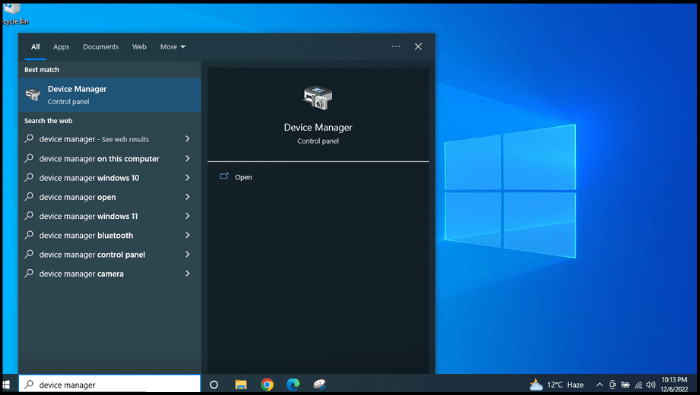
Step 2. You'll see a list of devices. Select and expand "Display adaptors" and right-click on "Graphics".
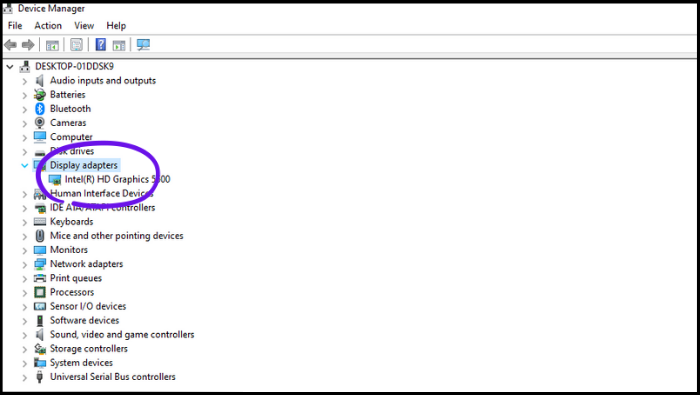
Step 3. Click "Update driver".
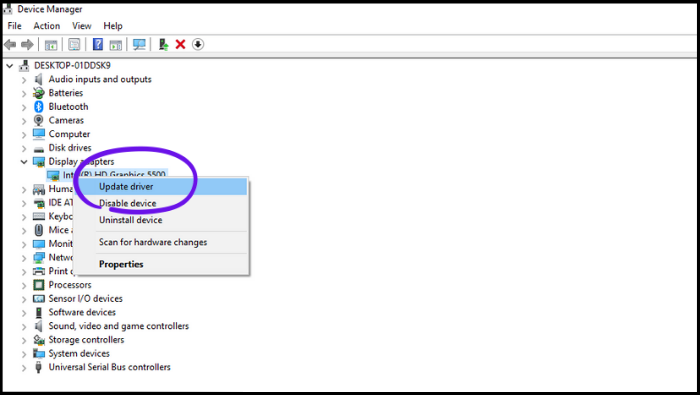
Note: If your drivers are already up-to-date and still facing the same issue, you need to click "Uninstall device" by following the same steps and reinstalling it.
Way 6. Update Windows
You need to update Windows because outdated Windows can be a reason for the computer shutting down suddenly. Here's how:
Step 1. Go to Windows settings, and click "Update & Security".

Step 2. Click "Check for updates" and wait a few minutes.
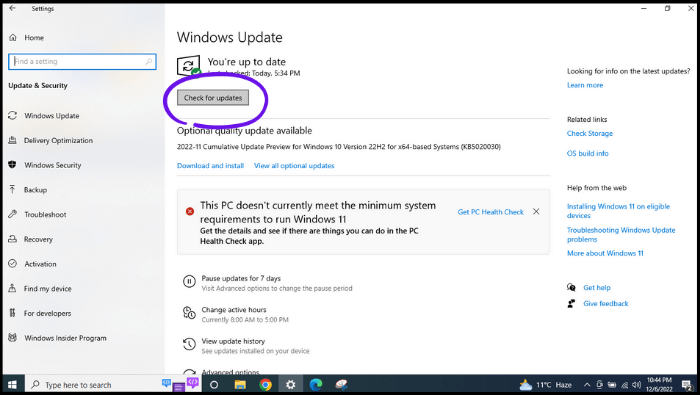
Step 3. Click "Download and install". Wait a few minutes; it'll take time.
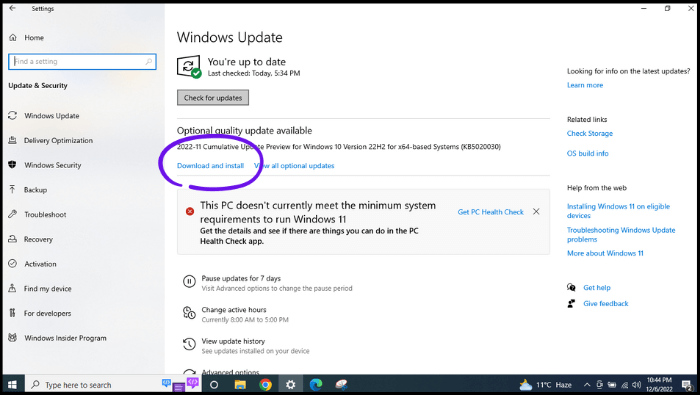
Way 7. Downgrade Windows to an Earlier Version
Your problem could be solved by downgrading Windows to an earlier version, and there is a possibility that sometimes new system updates couldn't be suitable for playing games. Compatibility could also be an issue between the game and the system. In the outcome, your computer shuts down suddenly. So, here's how you can downgrade:
Step 1. Open Windows settings, click "Update & security", and click "Recovery" from the left sidebar.
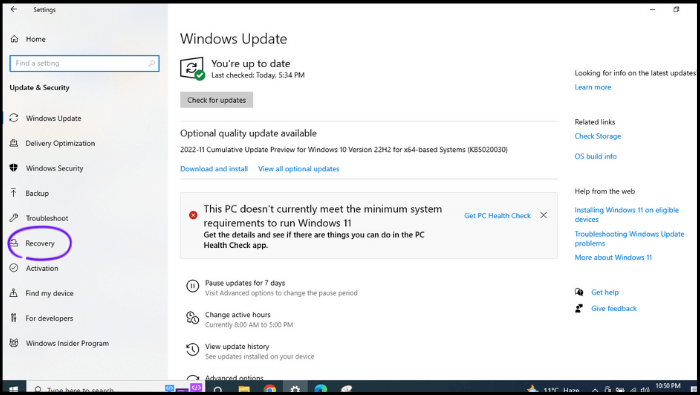
Step 2. Under "Go back to Windows 7", click "Get started" and follow the next process accordingly.
Note: You can only downgrade Windows within ten days if you update. After ten days, you won't be able to downgrade.
Bonus Tip: How to Backup Games on PC
If you are a game fan or game lover, you may worry about losing your game saves. It is said that the game data stored locally sometimes will disappear due to game updates, system updates, computer virus, failing hard drive, or some unknown factors. Therefore, backing up your PC game saves in advance would be best. In that case, Qiling Disk Master, a professional backup utility, comes to help.
Qiling Disk Master Pro is a highly-secured and security-oriented tool to keep all your valuable data safe. It allows you to back up systems, disks, partitions, files, etc., and back up your favorite games. For example, it lets you back up Minecraft worlds. Besides, it enables you to create diverse backup types, such as full, incremental, and differential backups. You can create an iso image from the operating system and compress backups. Furthermore, it enables you to reinstall Windows without losing games and provides 250G free cloud storage.
The following are the detailed steps:
Step 1. To begin the backup process, click the Select backup contents button.

Step 2. Four data backup categories are listed: File, Disk, OS, and Mail.

Step 3. Lists of both local and network files are shown on the left-hand side of the screen. Expanding the directory so that you can choose the files to back up.
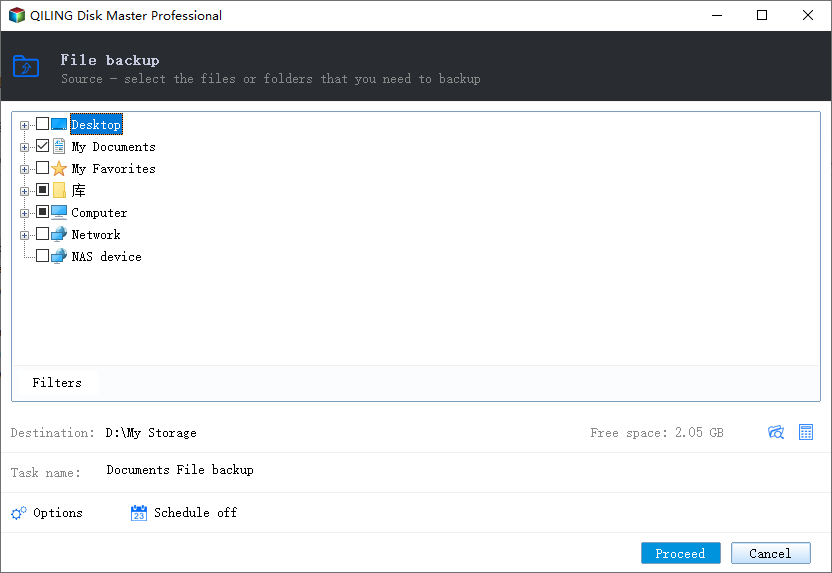
Step 4. Follow the guidance on the screen and choose the place where you want to store the back up.

Make sure that the backup is encrypted and set the backup schedule by clicking Options in Backup Options. You can also choose to start the backup at a certain time in Backup Scheme by clicking Options. There are many other customizable options that you can look into.

Step 5. You can store the backup file either on your computer, in Qiling's cloud service, or on a network-attached storage device (NAS).
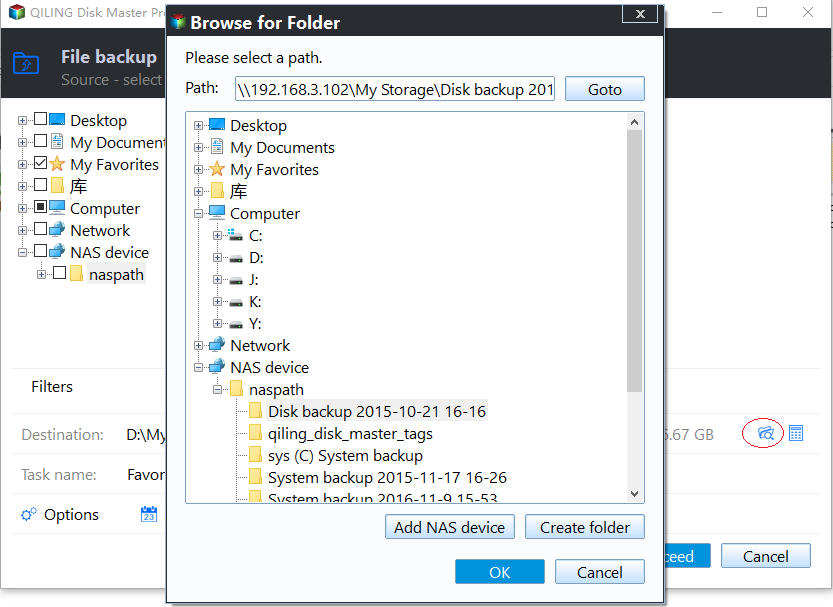
Step 6. Qiling Disk Master enables customers store backup copies of their files on a third-party cloud drive or on the company's own cloud storage.
If you want to back up your data on a third-party cloud drive, select Local Drive and scroll down to add Cloud Device. Then fill in your account information.
Click Qiling Cloud, then sign up and log in with your Qiling account if you wish to store backup files to Qiling' own cloud storage service.
Step 7. Click on Proceed to start a backup. When the backup process is done, it will display as a card on the left-hand side of the screen. A right-click will let you see more about how to handle the backup job in more depth.

The Bottom Line
If your computer shuts down when playing games, you can use any above-discussed methods to solve this issue. We elaborated on several reasons, factors, and ways to resolve that issue quickly. We hope your problem will be solved.
It is worth noting that if you want to protect your games on your computer better, you can use Qiling Disk Master Pro to create a backup of your favorite games. It also allows you to back up SSD to image and create an iso image from the hard drive. Qiling Disk Master Pro is an incredible backup tool. Do not hesitate to try it.
FAQs
1. How do I know if my PSU is failing?
To know your PSU condition, you need to try another PSU on your computer and see if that's working or not. Alternatively, if you have a multimeter/power supply tester available, you can check it with a multimeter/ power supply tester.
2. What temp is hot for a gaming PC?
During a game, a suitable CPU temperature is below 60 degrees Celsius or 140 degrees Fahrenheit. However, 70 and 80 degrees Celsius (158 to 175 degrees Fahrenheit) is a secure zone for gaming. You'll enter the danger zone at 90 degrees Celsius (194 degrees Fahrenheit). While temperatures above 85°C are acceptable for a few minutes of gaming or another heavy CPU usage, this is not recommended, even if your system is optimized for gaming.
3. How do I stop my gaming PC from overheating?
When playing games, your PC's internal components generate heat. If your PC's internal fans work properly to control the temperature, that'd be good for your gaming PC. Keep your PC on a flat, hard surface, ensure it's free from any barriers on all sides and maintain airflow.
4. Why does my PC keep turning off not overheating?
There are several other factors and causes besides overheating. It could be a motherboard, loose connection, overheating, or software issue. You need to check the power supply if you assume it is a hardware issue. Ensure it's plugged and the cord shouldn't be frayed or damaged. If the power supply is working correctly, check the motherboard. If there is a loose connection, try to tighten it. If that doesn't perform, you may need to change the motherboard or find other solutions in this article.
Related Articles
- Windows 10 System Interrupts 100 CPU - How to Fix?
- How to Use CMD Delete File/Folder [Windows 11 Applicable]
- 5 Best SSD For Long Term Storage Recommendations in 2023
- How to Fix Mac/MacBook Pink Screen? Here Are Reasons and Solutions